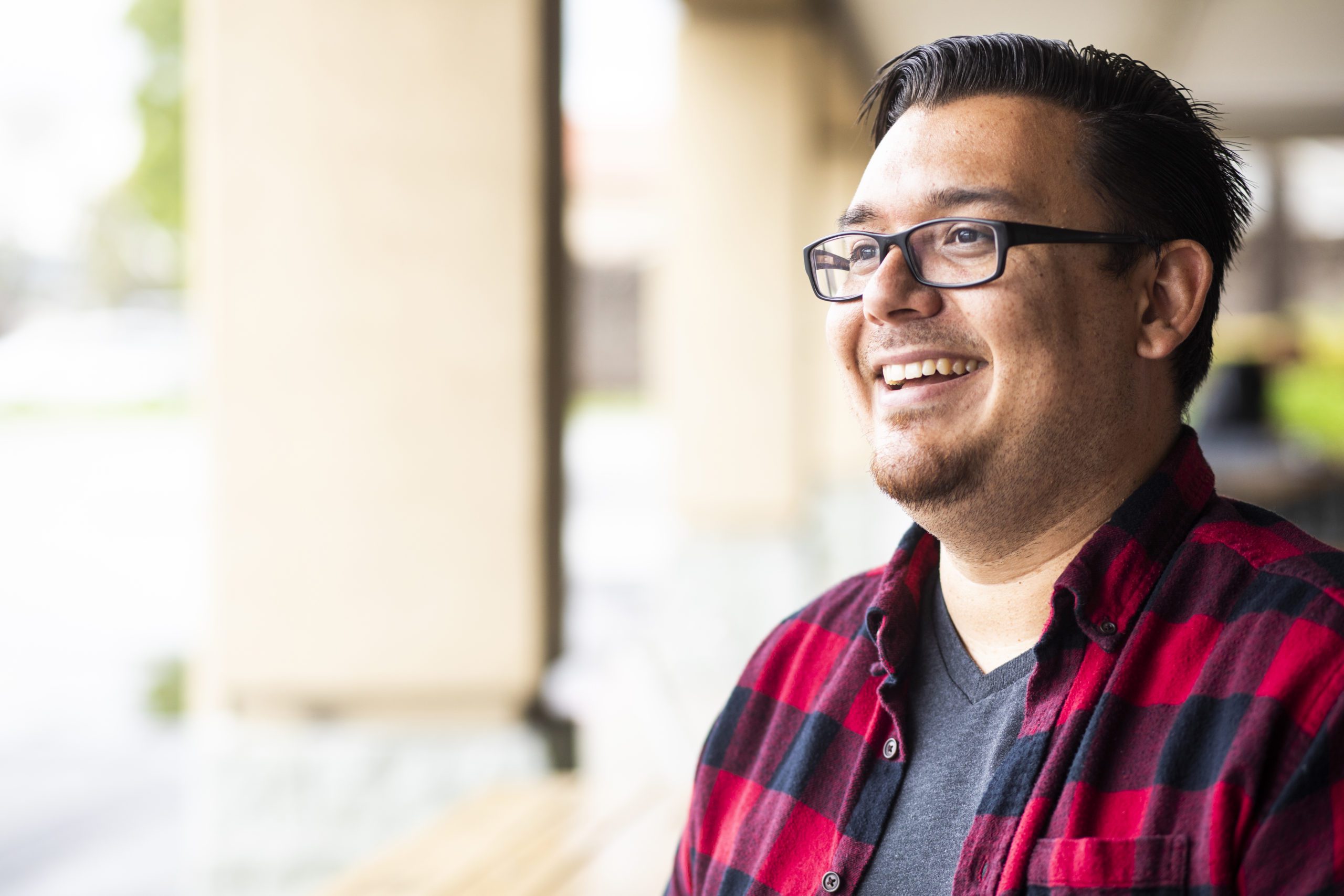What is Residential Addiction Treatment?
Learn more about residential addiction treatment, its benefits, and how Great Oaks Recovery can help you.
Questions About Treatment?
Our knowledgeable team is ready to discuss your situation and options. Your call is confidential with no obligation required.
What is Residential Treatment?
Residential addiction treatment is an intensive therapeutic approach to the treatment of mental health disorders and substance abuse. Most residential treatment centers offer a variety of services for addiction, trauma, eating disorders, and other mental health conditions. Residential addiction treatment centers require individuals to reside in the treatment center for the duration of treatment while attending various evidenced-based therapy sessions and programs aimed at treating the issues that brought them to treatment.1

Residential Treatment vs Inpatient Treatment
There are many similarities between inpatient treatment and residential treatment. Both forms of treatment offer programs in which the individual lives in the facility and engages in some sort of therapeutic program. They are also both aimed at helping individuals avoid relapses by allowing them to recover in a structured environment.
However, there are many differences between residential treatment centers and inpatient treatment. Inpatient treatment is often more intensive and secure and provides around-the-clock support from medical staff. Residential addiction treatment is a step down from inpatient treatment and continues to provide monitoring and support, but in a less intensive way.
Key Differences
Other key differences between residential treatment and inpatient treatment are in the treatment setting and the length of treatment. Typically, inpatient treatment is completed in a treatment facility or hospital and is short-term, ranging from a few days to a week. Residential treatment is carried out in more of a home-like environment, allows more freedom, and usually lasts between one to three months.
Long-Term Residential Treatment
Long-term residential treatment usually provides treatment for six to twelve months, during which an individual is living at the facility, engaging in treatment, and may possibly be required to work. Long-term residential treatment may be used when there is more severe treatment required.
There has been evidence to show that longer treatment is related to decreased rates of relapse. This could mean that for treatment to be the most effective, individuals might consider long-term residential treatment for the best outcome.2
Inpatient Treatment
Inpatient treatment is mostly used for crisis situations or medical detoxification. Inpatient treatment for drug rehab may include providing medical assistance to help manage and alleviate withdrawal symptoms. It also provides a secure, supportive environment for individuals to engage in therapy, away from unstable environments. Many inpatient programs also provide safety and support for individuals dealing with suicidal ideation or other serious mental health conditions.
As inpatient treatment is often considered to be short-term, lasting between a few days and one week, there is evidence to show that longer-term programs are more effective in preventing relapse or recurrence of mental health issues. However, there have been studies to show that inpatient alcohol rehab is more effective than outpatient treatment.3
Short-Term Residential Treatment
Short-term residential treatment is different from both long-term residential treatment and inpatient treatment in its length of stay. For short-term residential treatment programs, the length of stay is generally between thirty to ninety days and is typically used as a step down from inpatient treatment. Similar to long-term residential treatment, short-term residential treatment is used for individuals with more severe concerns who want to continue treatment in a more controlled and secure environment.
Though there is evidence to suggest that short-term residential treatment is less effective at maintaining recovery and sobriety than long-term residential treatment, short-term treatment is still considered effective in teaching individuals skills and techniques for coping and addressing the issues related to addiction or mental health conditions.4
Treatment Options for Alcohol Use Disorder in Texas
Treatment centers offer a variety of treatment options such as inpatient and outpatient treatment, different forms of therapy, support groups, and medication-assisted treatment.
Inpatient or Residential Treatment
For most people, inpatient or residential treatment is the best option when treating AUD. Inpatient treatment allows individuals to stay at a treatment center for a duration of time while detoxing, receiving therapy, and working on a plan for long-term sobriety. Alcohol detox medications may also be used at a treatment center to help ease withdrawal symptoms and prevent relapse from occurring.
Outpatient Treatment
Outpatient treatment is another option for those with a less severe drinking problem who want to continue living at home while receiving treatment. Outpatient treatment requires going to a treatment center at dedicated times during the week to receive treatment, attend therapy sessions, and work on a plan for continued success.
Inpatient Treatment for Cocaine Addiction
Individuals often do best in a structured and supportive environment in the early stages of cocaine recovery. For this reason, inpatient treatment or residential centers can be a great option.
At an inpatient facility, individuals will have 24/7 access to resources like behavioral therapy, group therapy, the 12-Step Program, fitness classes, wellness programs, and more. Inpatient is a good option for people who have co-occurring mental health conditions or who lack support at home.
Great Oaks’ Prescription Drug Rehab Center
Great Oaks offers prescription drug rehab services to help you heal. At Great Oaks, evidence-based methods are used for all treatment practices to ensure you receive the best results. Great Oaks employs highly trained medical professionals that will be available around the clock, keeping you comfortable and safe during the detox process.
Prescription drug addiction can affect someone’s life in many ways, so a prescription drug addiction treatment program can help repair many of these negative life effects.
Individual Counseling
Along with detoxing, individualized counseling will also be available when you receive treatment at Great Oaks. Individual counseling allows you to talk to a certified addiction counselor one-on-one to work on issues related to the addiction. Counseling will provide you with the skills needed to cope with the stresses of life without the use of substances and help you create a long-term plan for success and sobriety.
Group Therapy
Group therapy services are also available as part of the rehab program. Group therapy provides a sense of community and allows you to share and learn as part of a group. Group therapy can help build a support system of people working towards the same goal. In this way, you do not feel like you have to go through it alone.
Services Available in Residential Treatment
Residential addiction treatment and alcohol abuse treatment centers offer a variety of services to assist individuals in addressing and coping with their struggles. These include:
- Detox: Drug and alcohol rehabs assist with detox by providing appropriate monitoring and support to manage withdrawal symptoms in a safe environment.
- Individual therapy: Residential addiction treatment offers individual therapy to address issues, concerns, and consequences of addiction.
- Group therapy: Group therapy is required by many residential addiction treatment programs to provide individuals with social support, advice, and coping strategies.
- Family therapy: Family therapy can be utilized to help improve troubled relationships with partners, parents, children, or other family members.5
- Psychosocial education: This is provided in residential treatment, alcohol abuse treatment centers, and mental health facilities to help promote awareness of unhealthy relationships and maladaptive behaviors.
- Life skills: This is a form of education provided at many residential treatment centers that helps teach individuals appropriate skills that are necessary for living, such as how to apply for jobs, interviewing, and maintaining employment.
- Support groups: These groups, such as Alcoholics Anonymous, SMART Recovery, or Narcotics Anonymous, provide opportunities for people to share their experiences and feelings in a supportive environment with people going through similar circumstances.
- Relapse prevention planning: The main goal of residential addiction treatment is to help individuals plan for and prevent relapse. While in treatment, a goal may be to develop a relapse prevention plan before discharge.

Mental Health Facilities
Residential treatment is not just for treating addiction. There are many treatment centers that focus on depression, anxiety, trauma, obsessive-compulsive disorder, eating disorders, and other mental health conditions. These programs can provide a safe and supportive environment where the individual can learn healthy coping strategies, receive intensive therapy, and address any other concerns.
Before being admitted into a residential treatment program, many individuals start in an inpatient treatment program in order to address any immediate safety concerns. For example, a common reason for inpatient treatment for depression is to prevent suicide, and a common reason for inpatient treatment for eating disorders might be to address medical concerns.
Get Residential Treatment Services at Great Oaks Recovery Center
Struggling with addiction? Great Oaks Recovery Center is considered one of the premier drug and alcohol abuse treatment centers. Great Oaks Recovery Center provides individuals and families with comprehensive and holistic therapeutic techniques to address each person’s specific needs to move toward recovery. For more information, contact us at (713) 769-0102; we are here to support you.
Resources
- https://www.goodtherapy.org/learn-about-therapy/modes/residential-treatment
- https://pubmed.ncbi.nlm.nih.gov/15540492/
- https://pubmed.ncbi.nlm.nih.gov/8997760/
- https://ps.psychiatryonline.org/doi/10.1176/appi.ps.52.4.526
- https://www.mayoclinic.org/tests-procedures/family-therapy/about/pac-20385237
Questions About Treatment?
Our knowledgeable team is ready to discuss your situation and options. Your call is confidential with no obligation required.

